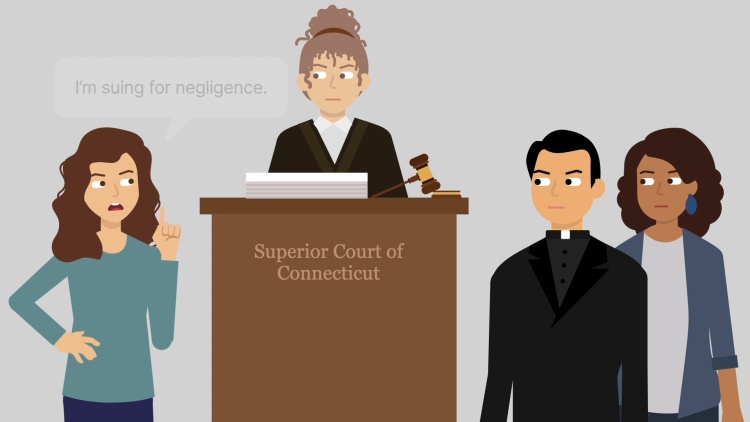Ervin v. Hosanna Ministry, Inc.
Connecticut Superior Court
1995 WL 681532 (1995) (Unpublished)
- Written by Megan Petersen, JD
Facts
Jacqueline Ervin (plaintiff) entered into the drug/alcohol rehabilitation program of Hosanna Ministry, Inc. (Hosanna) (defendant) in December 1992. Before admittance, Hosanna allegedly required Ervin to sign a general waiver releasing Hosanna from all liability for any possible claims. Jacqueline Ervin and Curtis Ervin (plaintiff) brought suit in Connecticut state court against Hosanna alleging Hosanna was negligent by failing to maintain its premises in a reasonably safe condition, resulting in injury to Jacqueline Ervin. Hosanna filed a motion for summary judgment on the ground that Ervin waived her right to bring any claims against Hosanna by “freely” and “with full comprehension” signing the general waiver on January 17, 1993. On July 26, 1995, the Ervins filed an objection to the motion for summary judgment, along with the affidavit of Jacqueline Ervin. Ervin alleged that at the time she entered Hosanna, she was addicted to and under the influence of cocaine and alcohol. Due to her addictions, Ervin said she had no recollection of signing the waiver. Ervin also claimed Hosanna made several fraudulent misrepresentations in the waiver and that had she been sober, she would not have assented to the terms of the document.
Rule of Law
Issue
Holding and Reasoning (Skolnick, J.)
What to do next…
Here's why 907,000 law students have relied on our case briefs:
- Written by law professors and practitioners, not other law students. 47,100 briefs, keyed to 996 casebooks. Top-notch customer support.
- The right amount of information, includes the facts, issues, rule of law, holding and reasoning, and any concurrences and dissents.
- Access in your classes, works on your mobile and tablet. Massive library of related video lessons and high quality multiple-choice questions.
- Easy to use, uniform format for every case brief. Written in plain English, not in legalese. Our briefs summarize and simplify; they don’t just repeat the court’s language.





